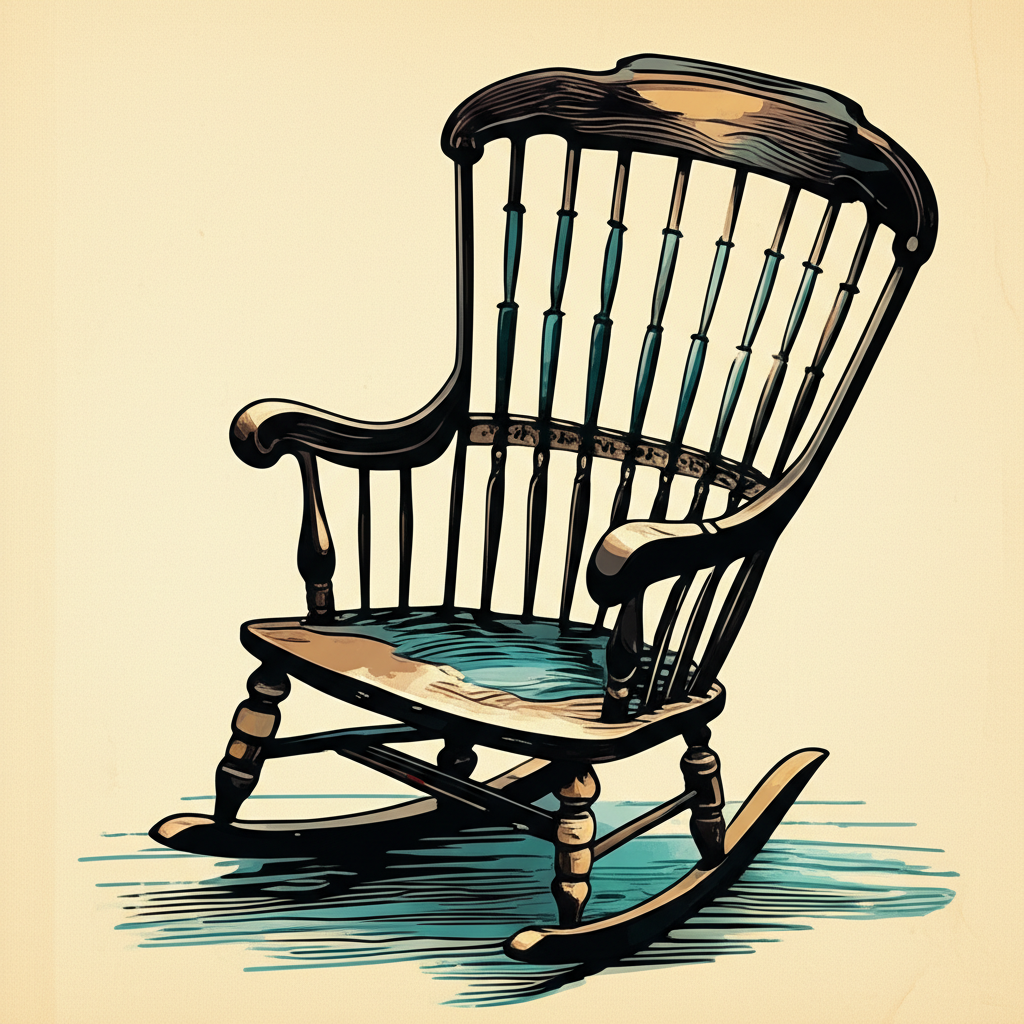
The superstition surrounding rocking chairs dictates that one should never leave an empty rocking chair rocking. Rooted in historical beliefs about spirits and witchcraft, this seemingly simple rule carries a weight of cultural significance that has evolved over centuries.
Historical Background
The rocking chair, a relatively late invention appearing in England around 1725, quickly became associated with the elderly and, perhaps surprisingly, witches. This association stems from the 18th-century’s deep-seated belief in the close proximity of the living and the dead, with many people convinced of the existence of ghosts. It was widely believed that the souls of the deceased would frequently visit their former homes. These spirits were often thought to occupy places of comfort and familiarity, including the rocking chairs they had favored in life. The unexplained rocking of an empty chair became a perceived sign of haunting, solidifying the rocking chair’s presence in ghost stories as an object that creaks and moves on its own.
Cultural Beliefs and Witchcraft
The connection to witches has its origins in earlier folklore. While medieval witch-hunt manuals listed supposed signs of witchcraft, other narratives explored the phenomenon of witchcraft from different angles. Some accused women at witch trials, rather than denying the charges, embraced their supposed powers. They fueled anti-witch hysteria by confirming their ability to transform into animals or fly. This led to investigations into the potions and concoctions they used. Johann Weyer, a Dutch physician and occultist, in his 1563 book De Praestigiis Daemonum (On the Illusions of the Demons and on Spells and Poisons), identified henbane, deadly nightshade, and mandrake as key ingredients. These ingredients, when combined into a potion and rubbed onto the skin, could induce the sensation of flying. This mixture was also applied to broomsticks and chairs, which were believed to serve as vehicles for flight.
Evolution of the Superstition
By the late 18th century, a printed superstition emerged warning against sitting next to an empty chair, as it was believed that spirits or witches might be occupying it invisibly. The rhythmic movement of an empty rocking chair further amplified this belief. The continuous rocking was thought to act as an invitation or encouragement for spirits to settle in and make themselves comfortable. The rocking motion, therefore, became more than just an innocent movement; it was perceived as a beacon for the supernatural.
Modern Interpretations
Today, while belief in ghosts and witches has waned for many, the superstition of not leaving an empty rocking chair rocking persists. It remains a common practice in some communities, often passed down through generations. While the original fear of attracting spirits or witches may have diminished, the custom serves as a reminder of the historical beliefs and cultural anxieties that once shaped perceptions of the unseen world.